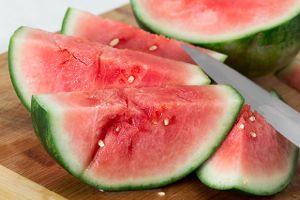Are you struggling with writer weight gain?
In featuring many writers on this site over the years, one thing I’ve found is that weight gain is a common struggle for us.
And no wonder. We spend much of our days at the computer and often have a hard time fitting in regular exercise.
All that time in the chair also tends to inspire mindless snacking, and we know that it’s easy to succumb to unhealthy foods options when knee-deep in a juicy scene.
If you’re frustrated at the gradually increasing numbers on the scale—or if you simply want to prevent such an increase—this post is for you.
7 Daily Activities to Help Prevent Writer Weight Gain
There’s a lot of advice out there about what we need to do to maintain a healthy weight.
Some of it is helpful, and a lot of it isn’t. After 20 years of working as a professional health writer, I can tell you with confidence that the following seven tips really work.
Better yet, these are things anyone can do. I’m not listing crazy diets or week-long fasts or beach body workouts that leave you in a back brace.
Instead, the best habits are those you can easily adopt into your daily life that help gradually chip away at the pounds.
With that in mind, here we go.
 1. Strength train.
1. Strength train.
If you aren’t already lifting weights or engaging in some other type of resistance training (using resistance bands also works), you’re missing out on a great way to keep your weight under control.
Both men and women of all ages benefit greatly from practicing resistance training about two times a week. You still need regular aerobic exercise, but if you do that alone, you may lose fat, but you’re also likely to lose muscle, especially at middle age and beyond.
Researchers reported in 2014 that twice-weekly weight training helped both men and women avoid gaining that most unhealthy of weight types—belly fat. The key is that as you get stronger, your body burns more calories.
“With weight training you’re going to gain lean body weight and that is going to make metabolism go up,” said Ron DeAngelo, director of Sports Performance Training at the University of Pittsburgh Medical Center. “So consequently your engine gets bigger and you burn more calories even when you are at rest.”
You don’t have to go crazy. This article at Health.com has some good suggestions. You can also get some hand weights and work with those, along with practicing some pushups and leg raises.
Be careful and practice good form to avoid injury, but don’t be afraid to give weight lifting a try. If you already have joint pain, get some of those resistance bands and use those instead. Find some good ideas here at Shape.com.
 Prevent Writer Weight Gain Tip 2. Stop before you get full.
Prevent Writer Weight Gain Tip 2. Stop before you get full.
You’ve probably heard this one, but I bet you’re not doing it very often. I know I have to keep knocking myself in the head about it! I tend to eat quickly as my mind is usually on the next thing I want to do. That means I can easily eat more than I need to feel full.
In fact, eating quickly is one of the main reasons we eat too much. Eating slowly allows your body to register what you’ve consumed and signal the brain that you’ve had enough.
The problem is that even if your stomach is full, your brain may not realize it until some time has passed. It has to receive signals from the gastrointestinal tract to give you that satisfied feeling, and it takes time for those messages to get from your stomach to your head.
A good rule of thumb is to take a little less than you think you need, eat slowly, and wait at least 20 minutes before going back for seconds. Give your brain time to let you know that you don’t need more.
 3. Shrink the size of all meals and snacks.
3. Shrink the size of all meals and snacks.
Health experts recommend you eat smaller meals more often to help keep your energy levels steady and to avoid the blood-sugar spike that can occur after eating a large meal.
But sometimes this advice can backfire, especially if you give yourself permission to eat more often without making adjustments in how much you’re eating.
The most effective tactic is to shrink the size of every meal and snack. As my dad always said, our eyes are bigger than our stomachs, and we really don’t need as much as we think we do.
Eating is enjoyable, and it’s hard to deny yourself. Here’s where the “more smaller meals” can be helpful. Use smaller plates—it has shown in studies to help. Then take less than you think you’ll need.
When that little voice inside you starts complaining about deprivation, assure her that you can have more later if you need it. Make “later” at least two hours later to give your brain time to register what you’ve already consumed.
Instead of a bag of nuts, cut it to only a handful. Rather than devour a bowl of chips, try just a cup. Instead of a whole sandwich, try just a half. Experiment every day with everything you eat and you’ll gradually develop healthier habits.
 Beat Writer Weight Gain Tip 4. Walk, walk, walk.
Beat Writer Weight Gain Tip 4. Walk, walk, walk.
No matter what else you do or don’t do for exercise, try to get in a walk on most days.
It is the easiest exercise to do and the least expensive, and it has a lot of studies behind it proving its health benefits. In addition to helping you stay active and avoid disease, it will help you keep off the pounds.
One could argue that running or biking or exercising at a higher intensity are all better options for shedding pounds. That might be true if you’re able to stick with these exercises every week and every year.
As we age, though, these types of activities can become more difficult. They are tough on joints and often result in injuries that keep us sidelined.
No matter what’s going on, you can usually walk, and have no doubt that it helps. In a 2015 study, researchers reported that for adults 50 and older, brisk walking for 30 minutes a day was better than cycling or running for keeping the weight off.
An earlier 2002 study found that walking 30 or 60 minutes a day both resulted in reductions in body weight and body fat.
 Prevent Writer Weight Gain 5. Eat yogurt.
Prevent Writer Weight Gain 5. Eat yogurt.
Yogurt, especially Greek yogurt, is high in protein, and protein helps keep you satisfied for longer.
Other proteins are helpful that way, too. I narrowed it down to yogurt because not only does it satisfy you with protein, it can help you lose weight because of the probiotics.
First, the protein. In a 2016, researchers reported that eating more protein increased the sensation of fullness.
An earlier 2008 study also reported that in addition to increasing satiety, protein can help increase calorie-burn and support muscle production over fat. In a 2015 study, researchers agreed that higher-protein diets can improve weight management.
Second, the probiotics. Yogurt is a good source of these, and they can help you maintain a healthy weight. Women who took probiotic supplements over a period of 12 weeks lost about twice the amount of weight as women taking a placebo.
They also continued to lose weight after the study period was over, whereas the women on the placebo did not. Study authors noted that they believed the probiotics found in American yogurts would have similar affects.
Another study found that consuming probiotics helped reduce body weight and body mass index (BMI). The science is still in its early stages, but the results so far look good. Besides, probiotics help ease digestion and boost the immune system too, so there’s no downside here.
Just make sure you choose the low-sugar types. A lot of the newer yogurts out there are full of flavors and sugar syrups that aren’t good for you.
 6. Eat watery foods.
6. Eat watery foods.
We naturally require fewer calories as we get older, and that can be tough.
When you’re used to eating a certain amount, it’s difficult to train yourself to eat less.
This is where filling up on watery foods can really help. I’m talking about soups, salads, and other options like melons, cucumbers, pickles, and celery.
An interesting study from Penn State found that eating foods with a high water content helped people cut back on calories and still feel satisfied.
In their study, participants who ate more pasta dishes with additional vegetables, smoothies, soup, and produce were more successful at curbing appetite and cutting calories.
The good news here is you don’t have to limit your portion sizes so much if you include more water-rich foods.
Some other good examples include chili with lots of veggies and beans, pasta with lots of zucchini and carrots, and more sprouts, lettuce, and tomato on your sandwich. Berries, broccoli, grapefruit, radishes, eggplants, peppers, and spinach are all good options.
In contrast, just to help you visualize it better—things like raisins, peanut butter, whole-wheat bread, and cheese, though they are healthy options, are more calorie-dense foods, and are more likely to lead to weight gain.
 Prevent Writer Weight Gain 7. Sleep well.
Prevent Writer Weight Gain 7. Sleep well.
Want to gain weight in a day? Just get a bad night’s sleep.
It leads to cravings, and not just any cravings—cravings for high-sugar, high-fat, and high-carb that are easily turned into extra fat.
Lack of sleep messes with the hormones that regulate your appetite, increasing your hunger hormone and making it really difficult to ignore those cravings.
The Mayo Clinic reports that women who slept less than six hours a night were more likely to gain weight than those who got 7 hours of sleep.
Other studies have indicated that if you don’t get enough sleep, you’re likely to eat 300 more calories per day, you’ll snack more, and you’ll exercise less. In one study, participants who didn’t get enough sleep for five days gained nearly two pounds.
Chronic sleep deprivation also changes the way your body stores fat. In a 2010 study, people who were put on a diet, but slept for 5.5 hours or less for 14 days, lost 55 percent less body fat than those who were on the same diet but slept for 8.5 hours a night.
“If your goal is to lose fat,” said study director Plamen Penev, assistant professor of medicine at the University of Chicago, “skipping sleep is like poking sticks in your bicycle wheels. Cutting back on sleep, a behavior that is ubiquitous in modern society, appears to compromise efforts to lose fat through dieting.”
Getting enough sleep, however, does the opposite. It helps you more easily reduce your intake of carbs and fats, and makes it easier to maintain a healthy weight or to lose weight.
In a 2012 study, researchers reported that total sleep time and quality of sleep predicted the loss of fat in people participating in a weight-loss program.
Best bet: Get between 7-8 hours every night.
How do you control your weight as a writer?
Sources
Linda Carroll, “To blast belly fat, do this for 20 minutes a day, Harvard study says,” Today, December 22, 2014, http://www.today.com/health/weight-training-better-aerobics-belly-fat-harvard-study-1D80385612.
Ann MacDonald, “Why eating slowly may help you feel full faster,” Harvard Health, October 19, 2010, http://www.health.harvard.edu/blog/why-eating-slowly-may-help-you-feel-full-faster-20101019605.
Kate Pickles, “Good news! Brist walks are better at keeping weight off than going to the gym,” Daily Mail, November 3, 2015, http://www.dailymail.co.uk/health/article-3301727/Good-news-Brisk-walks-BETTER-keeping-weight-going-gym.html.
Bond Brill J, et al., “Dose-response effect of wlaking exercise on weight loss. How much is enough?” Int J Obes Relat Metab Disord, November 2002; 26(11):1484-93, https://www.ncbi.nlm.nih.gov/pubmed/12439651.
Jaapna Dhilon, “The Effects of Increased Protein Intake on Fullness: A Meta-Analysis and Its Limitations,” Journal of the Academy of Nutrition and Dietetics, June 2016; 116(6):968-983, http://www.andjrnl.org/article/S2212-2672(16)00042-3/abstract.
Leidy HJ, et al., “The role of protein in weight loss and maintenance,” Am J Clin Nutr., April 29, 2015; https://www.ncbi.nlm.nih.gov/pubmed/25926512.
Marina Sanchez, et al., “Effect of Lactobacillus rhamnosus CGMCC1.3724 supplementation on weight loss and maintenance in obese men and women,” British Journal of Nutrition, 2013; 111(8):1507-1519, https://www.cambridge.org/core/journals/british-journal-of-nutrition/article/effect-of-lactobacillus-rhamnosus-cgmcc13724-supplementation-on-weight-loss-and-maintenance-in-obese-men-and-women/7C9810D79528C4ADC77A22EE45F9CA8E.
Diane Fennell, “Probiotics Help with Weight Loss, Study Says,” Diabetes Self Management, July 15, 2016, https://www.diabetesselfmanagement.com/blog/probiotics-help-weight-loss-study-finds/.
Penn State, “Reduce Calories, Stave Off Hunger with Water-Rich Foods—Not Water,” ScienceDaily, September 28, 1999, https://www.sciencedaily.com/releases/1999/09/990928074750.htm.
Donald Hensrud, “Is too little sleep a cause of weight gain?” Mayo Clinic, April 16, 2015, http://www.mayoclinic.org/healthy-lifestyle/adult-health/expert-answers/sleep-and-weight-gain/faq-20058198.
Nanci Hellmich, “How sleep loss leads to significant weight gain,” USA Today, July 20, 2014, https://www.usatoday.com/story/news/nation/2014/07/20/sleep-loss-weight-gain/7507503/.
“Sleep is Important to Weight Loss, Research Suggests,” Live Science, September 17, 2012, http://www.livescience.com/36652-sleep-weight-loss-advice.html.
“Sleep loss limits fat loss, study finds,” University of Chicago Medicine, October 4, 2010, https://news.uchicago.edu/article/2010/10/03/sleep-loss-limits-fat-loss-study-finds.
Jean-Philippe Chaput, Angelo Tremblay, “Adequate sleep to improve the treatment of obesity,” CMAJ, December 11, 2012; 184(18): http://www.cmaj.ca/content/184/18/1975.


This is becoming a problem recently. I’ve been gaining more weight than I imagined. I love the idea of walking. That works for me.
Great advice, Colleen! The one that trips me up is sleeping. Not all the time, but sometimes. And I know what that does for weight gain!
I’m actually having the opposite problem right now. With these 13 puppies, in addition to the rest of my life, food has been an issue here. All the four-leggeds are eating well. Me, not so much!
But I’m vowing to take care of me 🙂
Ha ha ha. From growing up on a ranch I know how that can go. Babies take priority! You should wrap that up as a good spring diet, Susan! :O)
Great suggestions, Colleen. Weight-bearing exercises, like resistance training, are so important for bone health. I need to mix it up to keep it interesting.
So true on the bone health, Jo-Anne. So important.
Good timing, Colleen. No one needs this post more than I do at the moment. I had a rough winter in lots of ways, and now that my life is getting back to something resembling normal, I find I’ve added an unfortunate number of pounds I won’t reveal here. Even with the daily walk with Sassy Dog, and a big effort to eat less, the pounds are stubbornly hanging on. Time to get serious and follow more of your suggestions!
Always harder to lose it than to gain it isn’t it? It’s just not fair! One other thing to try I’ve found really helps is to make sure you have 12 hours of not eating each day. We’re talking overnight, so you stop eating after dinner at 8:00 at night, for instance, you eat no more until 8:00 the next morning for breakfast. Don’t know if nighttime munchies are tough for you but they are for me! Avoiding that helps. Good luck.